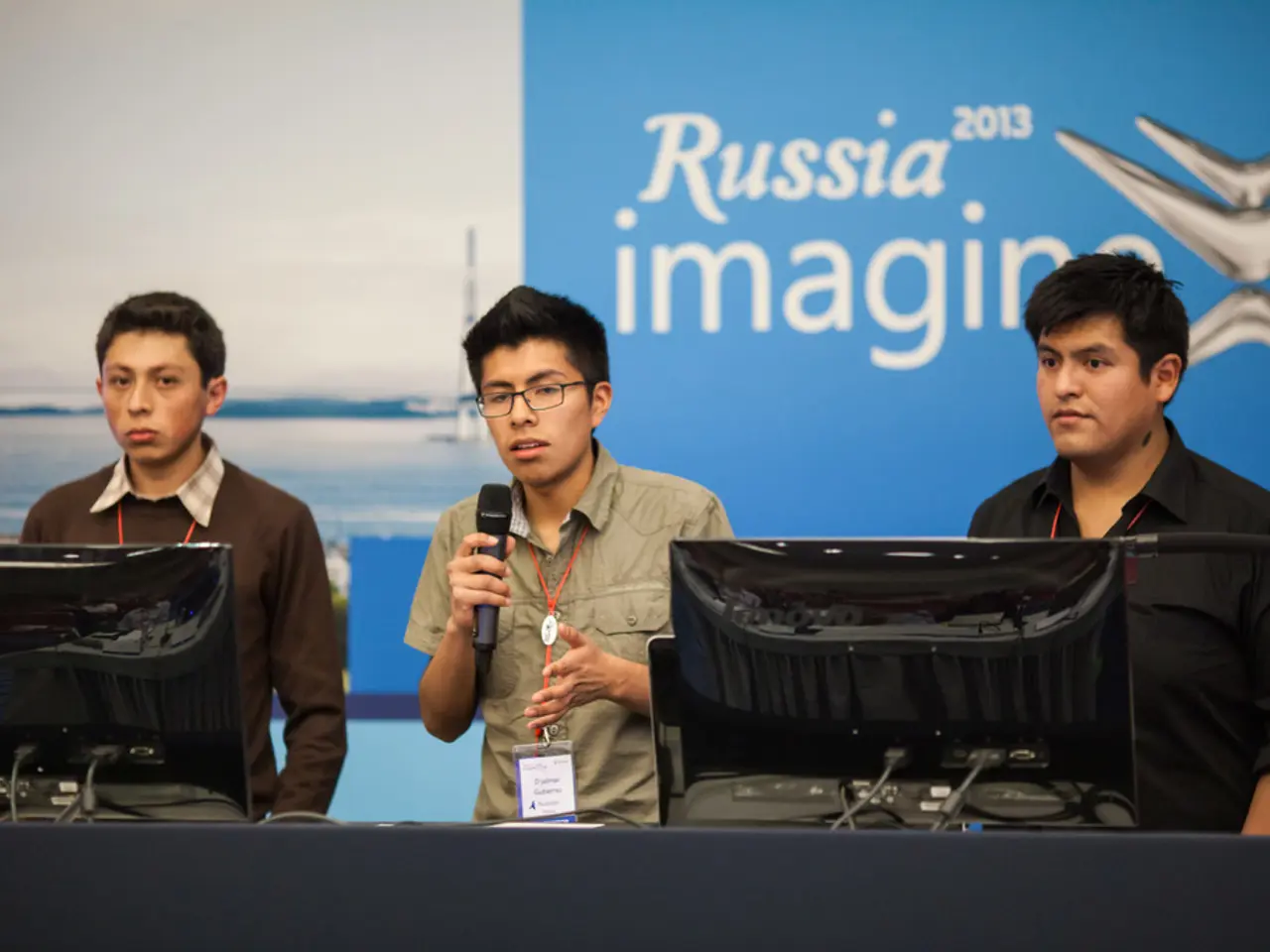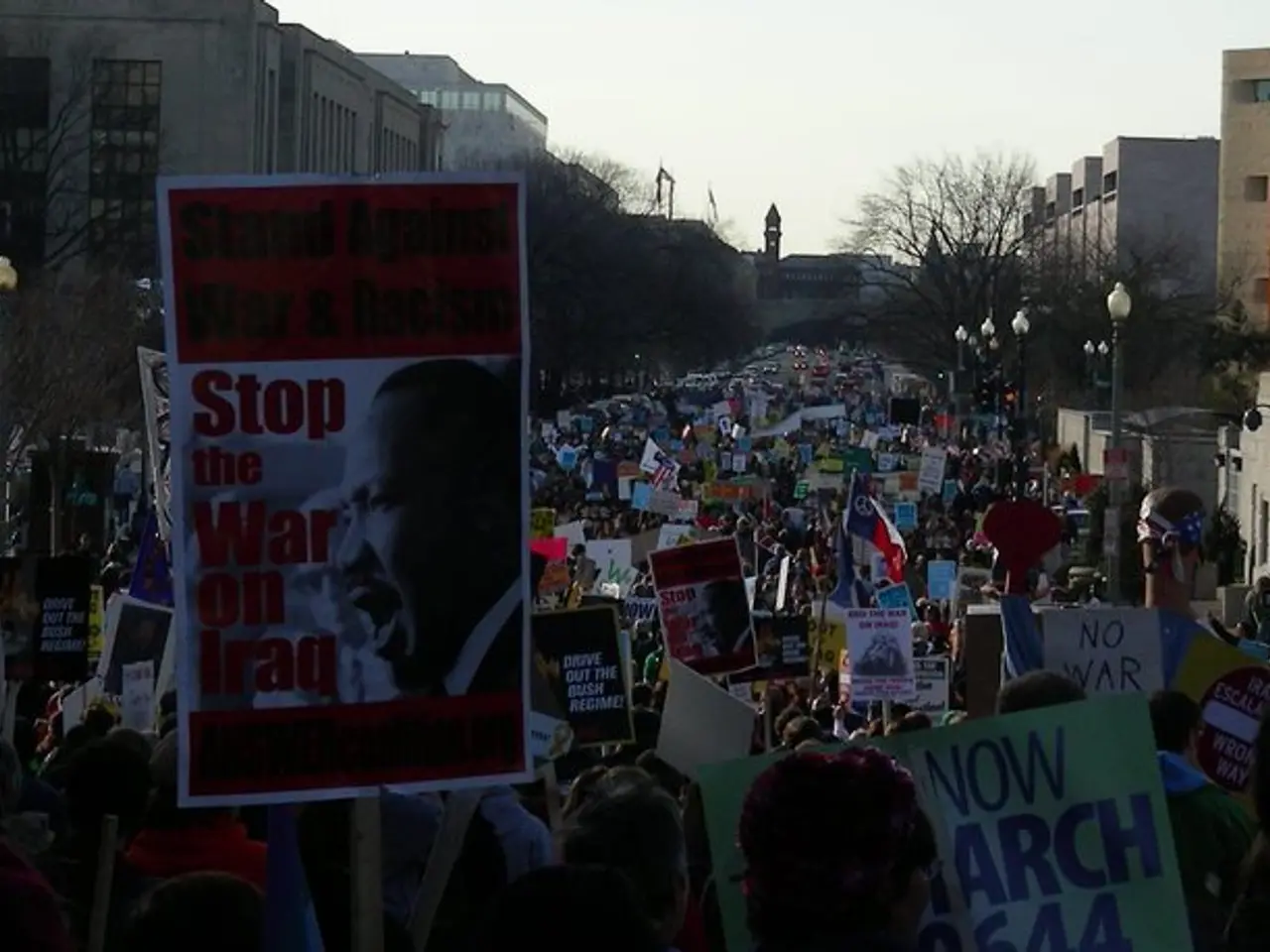"Political Whitewashing Activities"
In a recent decision, the Israeli Supreme Court (ISC) ruled to quash a petition submitted by Asaad Nasasra, a paramedic who was detained by IDF forces and held for several weeks without his family knowing his whereabouts. This case highlights the Court's approach to habeas corpus petitions for Palestinians detained in Gaza, which has been limited and constrained by the broader security and military context.
Thousands of Palestinians from Gaza have been arrested and held in detention for lengthy periods without their families' knowledge of their arrest and whereabouts. The IDF's policies regarding Palestinians detained in Gaza prevented Nasasra's family from confirming his whereabouts for weeks. The Israeli Supreme Court's handling of these petitions is marked by strict deference to executive and military authority, with limited practical relief for detainees and their families, especially under the heavy constraints of the current conflict.
Historically, the ISC has operated within a legal framework where the Attorney General (AG) and military legal authorities hold significant influence over decisions related to detainees. The ISC has emphasized the primacy of state security and the legality of government actions as reviewed by the AG, except in cases where the Court explicitly overrules them. In practice, this has meant that habeas corpus petitions filed by Palestinians detained in Gaza frequently face high barriers, and the Court rarely mandates the disclosure of detainee locations or releases on these grounds.
The shooting on March 23, 2025, resulted in the deaths of 15 Palestinians, including eight Red Crescent paramedics, six civil defense personnel, and a United Nations staff member. Following his detention, the Center for the Defense of the Individual petitioned the Israeli Supreme Court on Nasasra's behalf, seeking his location and release from detention (HCJ 49233-04-25). However, the Court quashed the petition on May 8, 2025.
Judge Isaac Amit emphasized the need to protect the Shin Bet director as one of the democratic gatekeepers who guard Israeli democracy. Meanwhile, Judge Daphne Barak-Erez concurred with Amit, stressing the many flaws in the decision to dismiss the Shin Bet's Director, Ronen Bar, who announced his retirement in June, citing his responsibility for the failure of the Shin Bet in the events leading to the October 7 massacre.
This approach fits into a complex reality where Israeli legal academia and the judiciary maintain the rule of law as defined by the Israeli government’s interpretation, even amid contentious military operations in Gaza. Legal scholars have raised concerns about the scope and legality of the Gaza war and the actions of Israeli authorities, but those concerns are addressed primarily within the government’s legal establishment rather than through the Supreme Court directly empowering detainees' families to know the whereabouts or seek judiciary remedy.
Currently, with the ongoing severe military operations and blockade in Gaza since October 2023, including Israel's strategy aiming at full conquest, there is no indication that the Supreme Court has relaxed its stance to facilitate greater transparency about detainees held without family knowledge. The dominant position remains that the security rationale may override individual habeas corpus claims, significantly limiting legal recourse for families seeking information about detainees in Gaza.
The case of Asaad Nasasra underscores the need for the Israeli Supreme Court to reconsider its approach to habeas corpus petitions for Palestinians detained in Gaza. The Court's strict deference to executive and military authority in these cases has resulted in limited practical relief for detainees and their families, and further examination is required to ensure that the Court upholds the principles of human liberty and due process in all cases.
- The case of Asaad Nasasra, a Palestinian paramedic who was detained by IDF forces, highlights the need for the Israeli Supreme Court (ISC) to reconsider its approach to habeas corpus petitions, as its strict deference to executive and military authority has resulted in limited practical relief for detainees and their families during conflicts, such as the ongoing war-and-conflicts in Gaza.
- In cases involving Palestinians detained in Gaza, the ISC's handling of habeas corpus petitions is marked by a primacy of state security and the legality of government actions, as reviewed by the Attorney General, which often results in high barriers for petitioners and a lack of transparency for the general-news public regarding detainee locations or releases.
- Amid ongoing military operations in Gaza, the Israeli Supreme Court's stance on habeas corpus petitions remains rigid, with the Court often prioritizing security concerns over individual rights, and families continue to face significant limitations when seeking judiciary remedy to determine the whereabouts of their detained loved ones.






